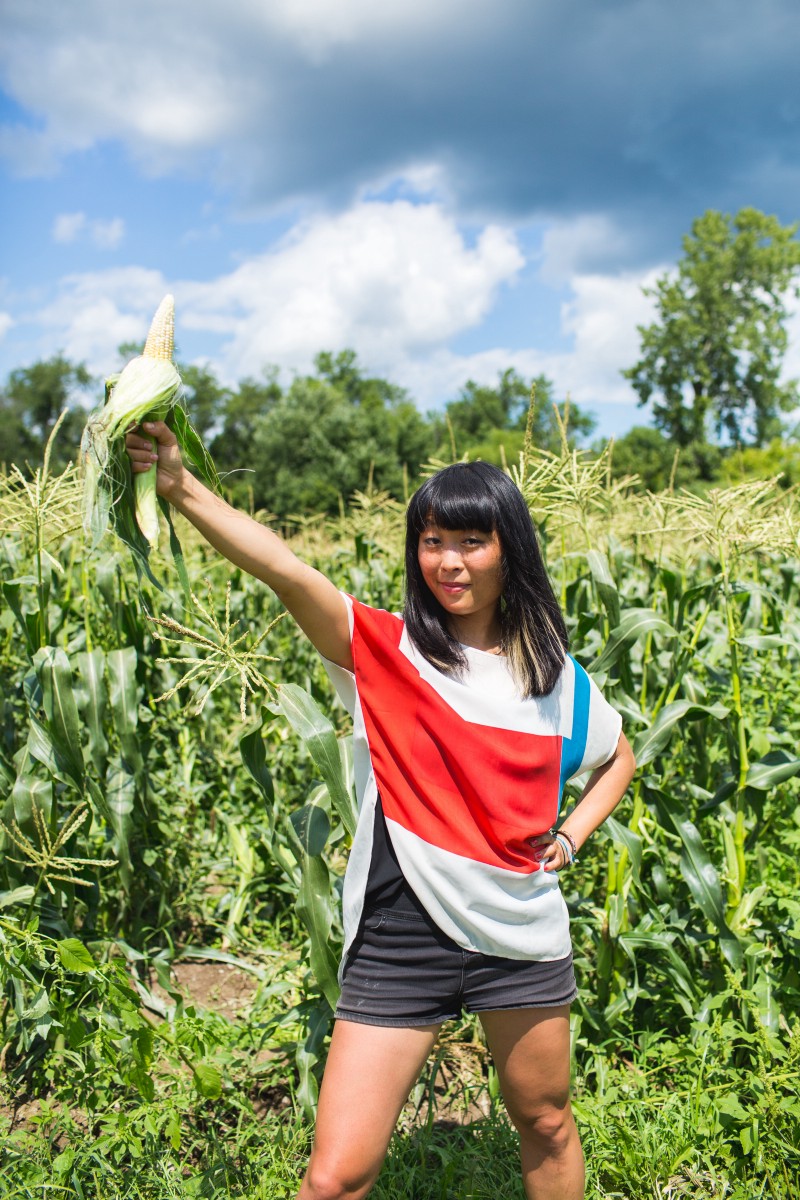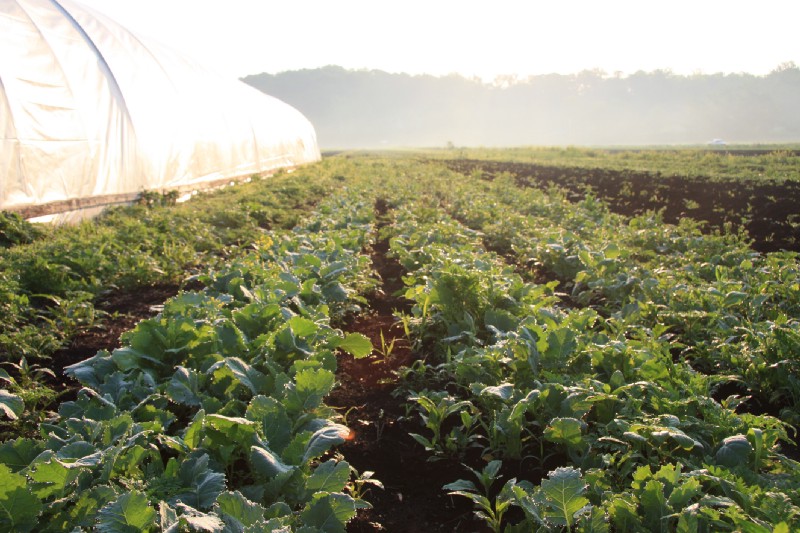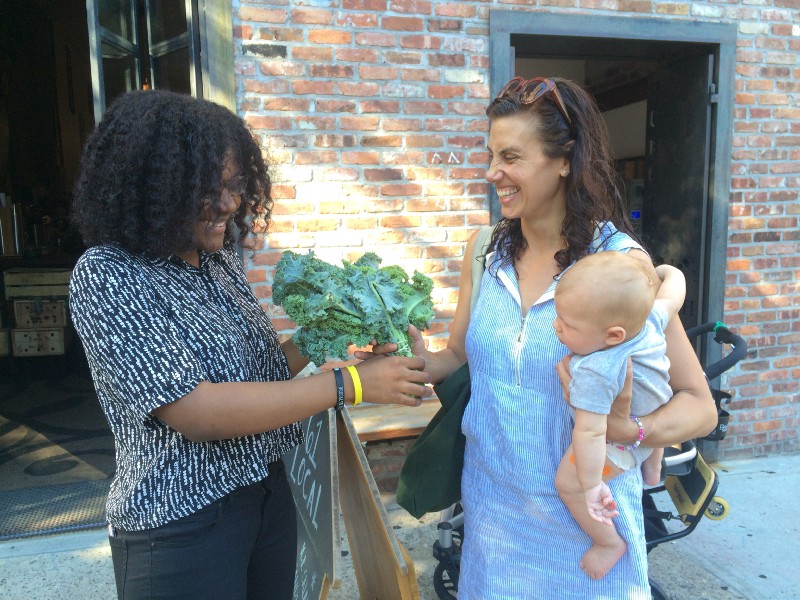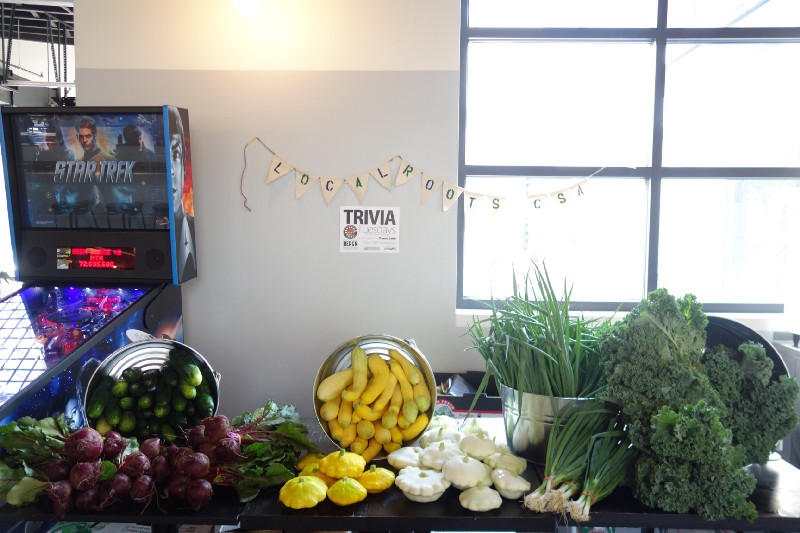
Eating more plant-based meals is the fastest way to shrink your carbon footprint. And beyond helping Mother Earth, you’ll also improve your own physical and mental health.
Today Wen-Jay Ying, the founder of Local Roots NYC, a CSA (Community Supported Agriculture) that brings local, seasonal food to New Yorkers, shares the importance of connecting to what you eat.
Splendid Spoon: Hi Wen-Jay! Why did you start Local Roots NYC?
Wen-Jay: I started Local Roots NYC to make access to local food more convenient, fun, and community-centric. I’d lived in NYC for years, but it didn’t feel like home. I craved community. When I was volunteering for Americorps at a food justice non-profit, I was introduced to CSAs. I loved how these food markets bring people together and help them connect to their food.
I knew I wanted to start my own version, but that job didn’t exist. My mom encouraged me to start my own business. It seemed ridiculous as I had no experience, but a few months later, I founded Local Roots NYC.
We’re a small business with a big mission: to start a movement that inspires a new home cooking culture, and changes the way New Yorkers engage with food and farmers.
SS: How has Local Roots changed your relationship with food?
Wen-Jay: I quickly learned that food links everything in our lives. It feeds us, nourishes the land, connects us with others, and reminds us of our past. How we buy food makes a statement in the world.
Eating seasonally has made me more patient and more aware of the world around me. It’s a spiritual practice of releasing the need for control. When cooking seasonally, the weather determines what you eat: you can’t always choose exactly what you want. In-season food tastes better because it’s at its peak flavor and nutrition: savor those juicy tomatoes from August till September, and then wait for next year’s harvest!

SS: How has this closer relationship with food changed your relationship with the planet?
Wen-Jay: As my taste buds become more sensitive to the way food should taste when it’s fresh, I become more connected to the rhythms of the Earth and her needs. I get anxiety looking at how different the food is in grocery stores compared to CSAs, knowing how many chemicals and pesticides are used to make that food look “perfect”.
We are all responsible for the future of our Earth. It feels daunting to think of how much our planet’s hurting now, but every little thing we do has a large impact. Vote with your food dollars! Let trustworthy farmers and producers take care of the land. Cook with local ingredients. Upcycle food scraps. Compost as much as you can.
SS: Veggies are central to the CSA. Does this change how people cook, eat, and feel?
Wen-Jay: Having veggies as the focal point wasn’t intentional, but it’s helped us evolve into what we are today. It’s also changed the way we eat and cook. Having beautiful vegetables in the kitchen helps us understand seasonality, and our members are excited when we bring them unfamiliar vegetables, or share new ways of cooking an ingredient.
We’ve also heard testimonials of weight loss from eating more vegetables and cooking at home: it’s a result of controlling what you put in your food. Individuals with certain health issues have told us that Local Roots has improved their health and made it easier to follow elimination diets.

SS: How do you encourage your members to use food as medicine?
Wen-Jay: Food is medicine beyond just nourishing our bodies: it enriches our lives in multiple ways. At Local Roots, we always want food and culinary education to be fun. It shouldn’t feel or taste like medicine, it should just be medicine. Grocery shopping and cooking can seem like a chore, so we make our markets part of your social life. You’ll find our markets at neighborhood bars, cafes, or your office. Grab your bunch of kale and a drink with a friend! Also, if ingredients are fresh and delicious, people will want to eat healthily and cook more.

SS: How does seasonal eating help the environment and ourselves?
Wen-Jay: Seasonal produce is harvested at its peak flavor and nutrition. By varying the types of veggies you eat, you diversify your nutrients intake. Eating seasonally also means farmers can grow an array of products, keeping their land and ecosystem biodiverse.
SS: You’re a busy, plant-centric person. What do you typically eat in a day?
Wen-Jay: It depends on the season, my mood, and how stressed I am (different levels of chocolate intake!). I like to start with oatmeal mixed with ginger, cumin, and cinnamon.
I bring lunch to work. Recently I’ve been roasting the root veggies from our farmers — sweet potatoes, parsnips, and turnips — with our our new spice blend (sumac, cumin, and chili). I have it with a hard boiled egg and fresh greens. Post-lunch, I love to indulge in chocolate from a local company like Raaka.
Dinner is usually chicken (I roast a whole chicken on Sunday for the week) with the same veggies and greens I had for lunch. Sometimes I add different spices or hot sauce, but I don’t mind eating the same thing twice a day as the veggies are so delicious. 95% of what I eat is local, and grown or produced by someone I know. There’s a lot of love in each bite!
